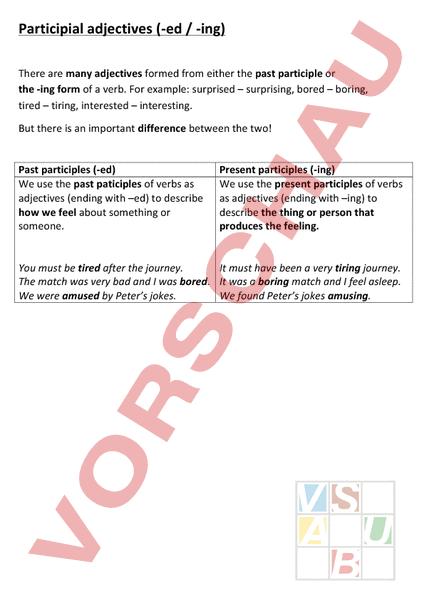Arbeitsblatt: Participial adjectives (-ed / -ing)
Material-Details
Kurze Theorie (Folie) zum Unterschied des Gebrauchs der Past participials und der -ing Form als Adjektive
Englisch
Grammatik
8. Schuljahr
1 Seiten
Statistik
107376
1298
10
24.11.2012
Autor/in
Toni Durrer
Chälenrain 24
6053 Alpnachstad
6053 Alpnachstad
041 670 07 60
076 578 07 60
076 578 07 60
Land: Schweiz
Registriert vor 2006
Textauszüge aus dem Inhalt:
Participial adjectives (-‐ed / -‐ing) There are many adjectives formed from either the past participle or the -‐ing form of a verb. For example: surprised – surprising, bored – boring, tired – tiring, interested – interesting. But there is an important difference between the two! Past participles (-‐ed) We use the past paticiples of verbs as adjectives (ending with –ed) to describe how we feel about something or someone. You must be tired after the journey. The match was very bad and I was bored. We were amused by Peters jokes. Present participles (-‐ing) We use the present participles of verbs as adjectives (ending with –ing) to describe the thing or person that produces the feeling. It must have been a very tiring journey. It was a boring match and I feel asleep. We found Peters jokes amusing.
